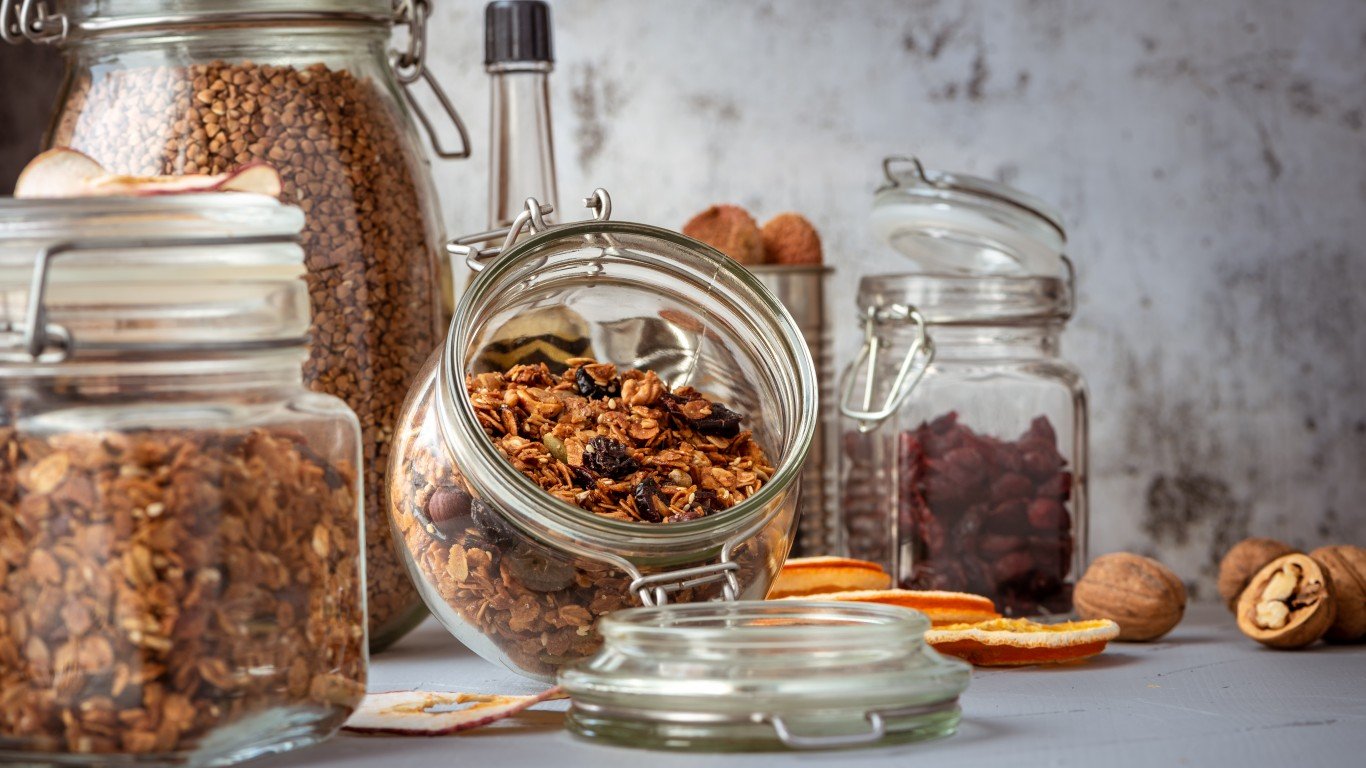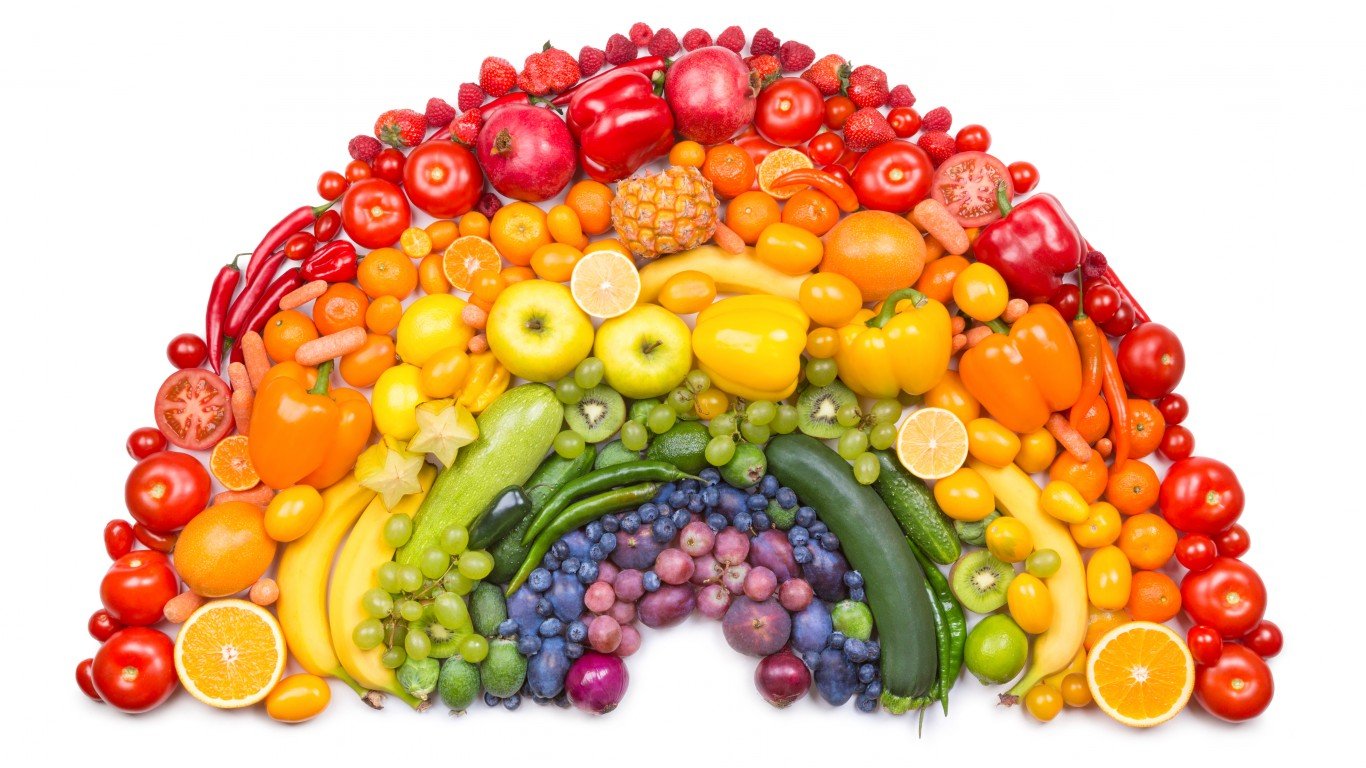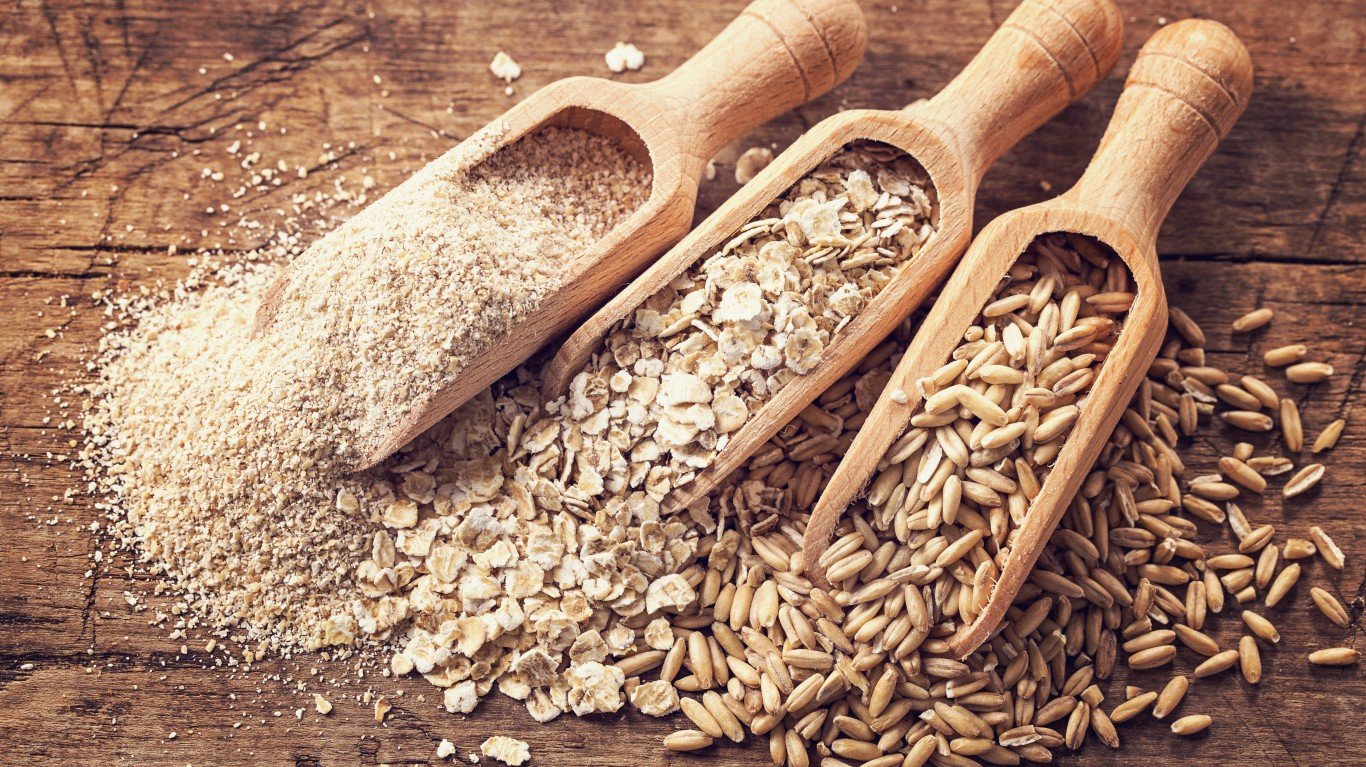
21. Eat slowly
While there are no studies proving the common narrative that it takes 20 minutes for our brains to register that our stomachs are full, there is most likely a lag, as partially digested food and nutrients must enter the small intestine before digestive hormones are released to signal to the brain to stop eating.
In theory, eating too quickly might not give this hormonal feedback system adequate time to relay satiety to the brain. A study published in the Journal of the American Dietetic Association concluded that although further study is needed, eating slowly may help people feel more full and eat less calories.

22. Keep healthy foods at home, so you don’t reach for junk foods
A 2018 study of online food choices suggests that unhealthy food options may be more influential than healthy options. The researchers concluded that compared to adding healthier options, removing less healthy food options could have a greater impact on healthier choices.
If this is true, then it is a good idea to keep only healthy foods stocked and avoid bringing home junk food. A bowl of fruit, vegetables, and hummus, or a jar of nuts within easy reach can healthily fulfill snacking urges.

23. Limit grilled and fried meats
Heating meat to high temperatures, especially if frying or grilling it over an open flame, can cause the formation of chemicals that cause changes in DNA and may increase cancer risk. Smoke also increases the amount of these chemicals in meat.
An easy way to avoid ingesting these potentially cancerous compounds is to poach, roast, braise, or stew meat and avoid burning it or exposing it to direct flame or smoke. If you are going to grill, consider partially cooking it before putting it over the flames and use leaner cuts to avoid fat dripping into the flames.

24. Eat the rainbow
Phytonutrients such as beta-carotene and lycopene are often what give fruits and vegetables their distinctive colors and flavors. They may also help prevent disease and have a myriad of other health benefits. A great way to receive the benefits of multiple phytonutrients is to eat fruits and vegetables of all colors.

25. Eat whole grains
A diet high in whole grains may reduce the risk of heart disease, diabetes, and premature death. Unlike refined grains whose bran and germ have been removed, whole grains retain their fiber and nutrients. Fiber helps slow the digestion of starch, which prevents rapid spikes in blood sugar. Cooking with unprocessed whole grains such as amaranth, barley, oats, and wild rice can ensure you get more of the nutrients that these grains offer.





